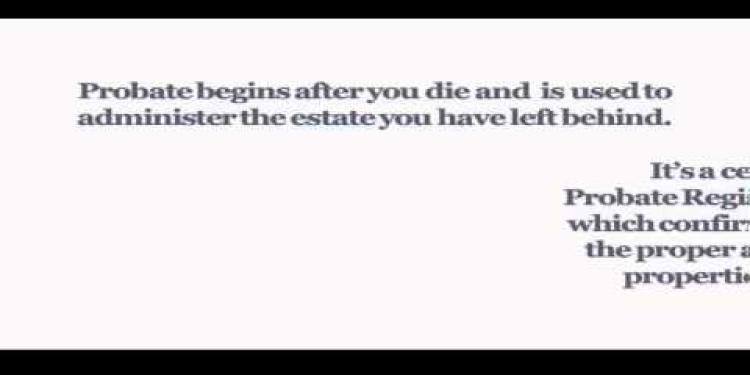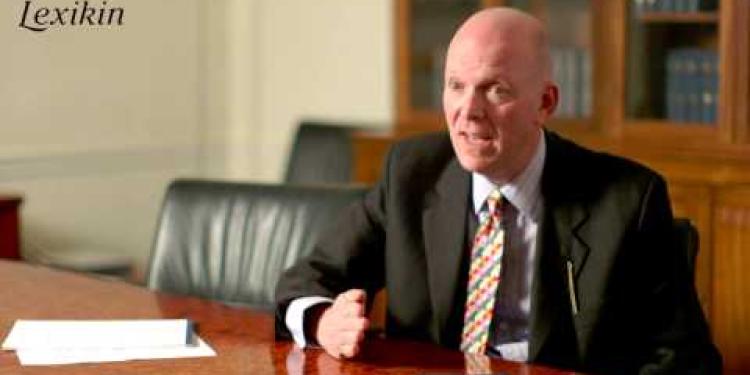Find A Professional
More Videos On This Subjectdiagnosis
Wills, Probate & Tax Planning in the UK
Understanding Wills in the UK
A will is a legally binding document that outlines how a person's assets and estate will be distributed after their death. In the United Kingdom, creating a will ensures that your wishes are respected and minimizes the potential for disputes among beneficiaries. To be considered valid, a will must be made by someone aged 18 or older, written voluntarily, and signed in the presence of two witnesses who are not beneficiaries. Without a will, the estate is distributed according to the rules of intestacy, which might not align with the deceased's wishes.The Probate Process
Probate refers to the legal process of administering the estate of a deceased person. In the UK, probate confirms the validity of a will and grants the executor the authority to distribute the estate. If there's no will, an administrator is appointed. Executors have several responsibilities, including valuing the estate, paying any outstanding debts, and distributing assets to beneficiaries. Obtaining a "Grant of Probate" or "Letters of Administration" can take from a few months to over a year, depending on the complexity of the estate.Importance of Tax Planning
Tax planning is a crucial aspect of managing one's finances, especially in the context of estate planning. In the UK, inheritance tax (IHT) is levied on estates worth over a certain threshold (£325,000 as of the latest guidelines). Effective tax planning can mitigate the impact of IHT, ensuring that more of your estate is passed on to your beneficiaries. Strategies include making lifetime gifts, utilizing annual exemptions, and setting up trusts. Consulting with a financial advisor or tax specialist can provide tailored advice to optimize your estate's tax efficiency.Seeking Professional Assistance
Given the complexities involved in wills, probate, and tax planning, seeking professional assistance is advisable. Solicitors specializing in these areas can provide invaluable guidance, ensuring all legal requirements are met and advising on strategies to maximize the benefits for beneficiaries. They can also offer support during the probate process, handling administrative tasks and solving any issues that may arise. By understanding and appropriately planning for these aspects, individuals in the UK can ensure their wishes are honored, minimize potential conflicts, and secure their family's financial future.Frequently Asked Questions
What is a will?
A will is a legal document that sets out your wishes regarding the distribution of your estate and the care of any minor children after your death.
Why should I make a will?
Making a will ensures that your estate is distributed according to your wishes, can help reduce inheritance tax, and can provide for the care of minors and other dependents.
What happens if I die without a will?
If you die without a will (intestate), your estate will be distributed according to the rules of intestacy, which may not reflect your wishes.
Can I write my own will?
Yes, it is possible to write your own will, but it is advisable to seek legal advice to ensure it is valid and covers all necessary aspects.
What is probate?
Probate is the legal process of administering the estate of a deceased person, including distributing their assets and paying any debts.
How long does probate take?
The probate process can take several months, and sometimes longer, depending on the complexity and size of the estate.
Do I have to pay inheritance tax?
Inheritance tax may be payable on your estate if its value exceeds the tax-free threshold. The current threshold is £325,000 (as of 2023), with different allowances and exemptions potentially applicable.
Can I reduce the inheritance tax my beneficiaries have to pay?
Yes, effective tax planning, such as making lifetime gifts and setting up trusts, can help reduce the amount of inheritance tax payable.
What is a trust?
A trust is a legal arrangement where one person (the trustee) holds assets for the benefit of another person (the beneficiary).
Who should I appoint as executors in my will?
Executors are the people responsible for carrying out your wishes as specified in your will. It's important to choose reliable and trustworthy individuals, and you can appoint family members, friends, or professionals such as solicitors.
How often should I update my will?
You should review and potentially update your will every few years or whenever you experience significant life changes, such as marriage, divorce, the birth of a child, or changes in financial circumstances.
What is a codicil?
A codicil is a legal document that makes amendments or additions to an existing will. It must be executed with the same formalities as the original will.
Can I disinherit someone in my will?
Yes, you can disinherit someone; however, certain dependents may have the right to contest the will under the Inheritance (Provision for Family and Dependants) Act 1975.
What is a lasting power of attorney (LPA)?
A lasting power of attorney (LPA) is a legal document that allows you to appoint someone to make decisions on your behalf if you become incapable of doing so. There are two types: one for financial decisions and another for health and welfare decisions.
How can I choose the right solicitor for wills and probate?
Choosing a solicitor can depend on their experience, reputation, and your personal level of comfort with them. It's a good idea to seek recommendations and read reviews or testimonials, and ensure they specialize in wills and probate law.
Useful Links
Useful links from: Will and Probate Solicitor Bath
- Citizens Advice Provides comprehensive information on wills and probate, including advice on how to find a solicitor and what to do when someone dies.
- Age UK Offers guidance and advice specifically for older people on making wills and dealing with probate, and can help connect you with local solicitors.
- NHS - End of life care Provides information on the importance of making a will and who can help you, including solicitors and other support services.
- Which? - Wills and probate Provides detailed guides on writing wills, dealing with probate, and finding financial and legal advice.
Useful links from: The dangers of not having a Will
- NHS Inform - Why Make a Will NHS Inform provides information on why it is important to make a will, outlining potential issues such as family disputes and the lack of control over who inherits your assets.
- Citizens Advice - Wills Citizens Advice offers comprehensive guidance on wills including the risks of dying intestate (without a will), such as the state deciding how your estate is distributed.
- Age UK - Writing a Will Age UK explains the importance of writing a will to ensure your estate is managed according to your wishes and to avoid the complications and additional stress for your relatives.
- Marie Curie - Making a Will Marie Curie provides advice on making a will, including potential consequences of not having one, such as your estate being distributed according to intestacy rules which may not align with your wishes.
More Videos On This Subjectdiagnosis
Have you found an error, or do you have a link or some information you would like to share? Please let us know using the form below.
- Ergsy carfully checks the information in the videos we provide here.
- Videos shown by Youtube after a video has completed, have NOT been reviewed by ERGSY.
- To view, click the arrow in centre of video.
- Most of the videos you find here will have subtitles and/or closed captions available.
- You may need to turn these on, and choose your preferred language.
- Go to the video you'd like to watch.
- If closed captions (CC) are available, settings will be visible on the bottom right of the video player.
- To turn on Captions, click settings .
- To turn off Captions, click settings again.

